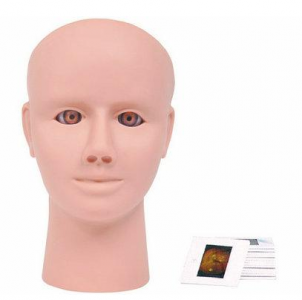迪威国际厅客服
Phone:+86 19937901373
Tel:+86-0379-65160607
Email:sophia@adahealthy.com


In the vast field of ophthalmology, the ocular retinopathy examination model is like a solid bridge connecting theoretical knowledge and clinical practice, laying a solid foundation for the growth of ophthalmologists and medical students.

As one of the most delicate and complex tissues in the human body, the diagnosis and treatment of retinal lesions requires the skill and experience of doctors. However, in the real clinical environment, due to the diversity, complexity and ethical limitations of patients' conditions, it is often difficult for doctors to obtain enough practical opportunities to comprehensively and deeply grasp the characteristics and examination skills of various retinopathy.
At this time, the ocular retinopathy examination model is particularly important. Through highly simulated design, these models accurately reproduce various pathological forms of the retina, including common and complex diseases such as diabetic retinopathy, hypertensive retinopathy, and macular degeneration. Doctors and medical students can practice repeatedly on the model, get familiar with the fundus manifestations of different lesions, and master the correct examination techniques and diagnostic procedures.
More importantly, the ocular retinopathy test model provides physicians with a safe, risk-free practice environment. By operating on the model, doctors do not need to worry about causing any harm or discomfort to the patient, and can focus more on improving their skills and diagnostic accuracy. This burdenless experience helps doctors to be more confident and comfortable with challenges in a real clinical setting.
In addition, the ocular retinopathy test model can be reused. Compared with a real person examination, the use of the model is less costly and will not be affected by factors such as changes in the patient's condition and time constraints. This allows doctors and medical students to practice at any time, anywhere, thereby accelerating skill development and knowledge consolidation.
To sum up, ocular retinopathy examination model is not only an important tool in ophthalmology teaching and training, but also a bridge in clinical practice. It helps doctors and medical students to bridge the gap between theory and practice, convert knowledge into practical ability, and contribute indispensable force to the progress and development of ophthalmology. In the future, with the continuous progress of medical technology and the growing medical demand, the application prospect of ocular retinopathy examination model will be broader, providing solid support and guarantee for the growth of more ophthalmologists and medical students.